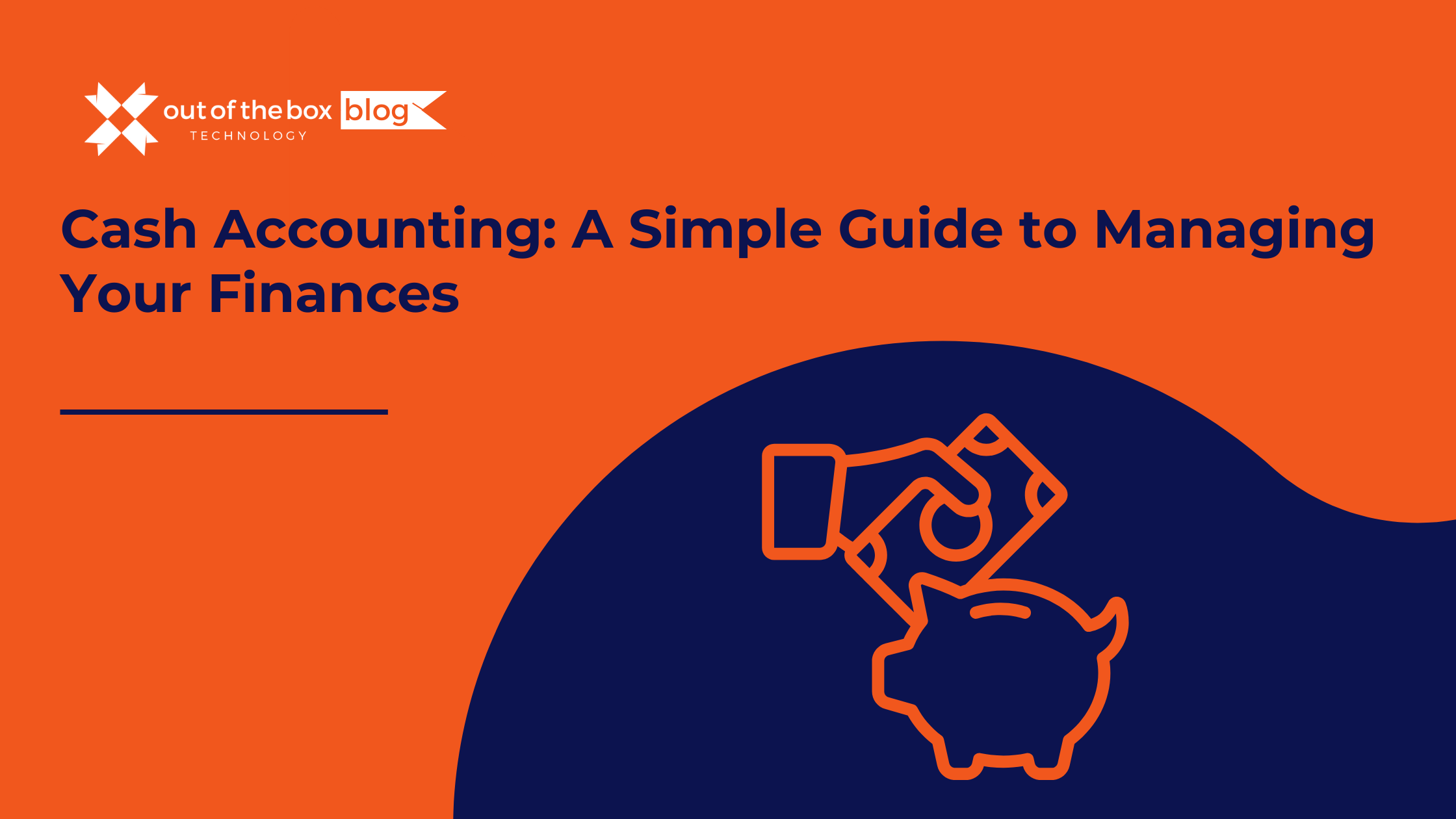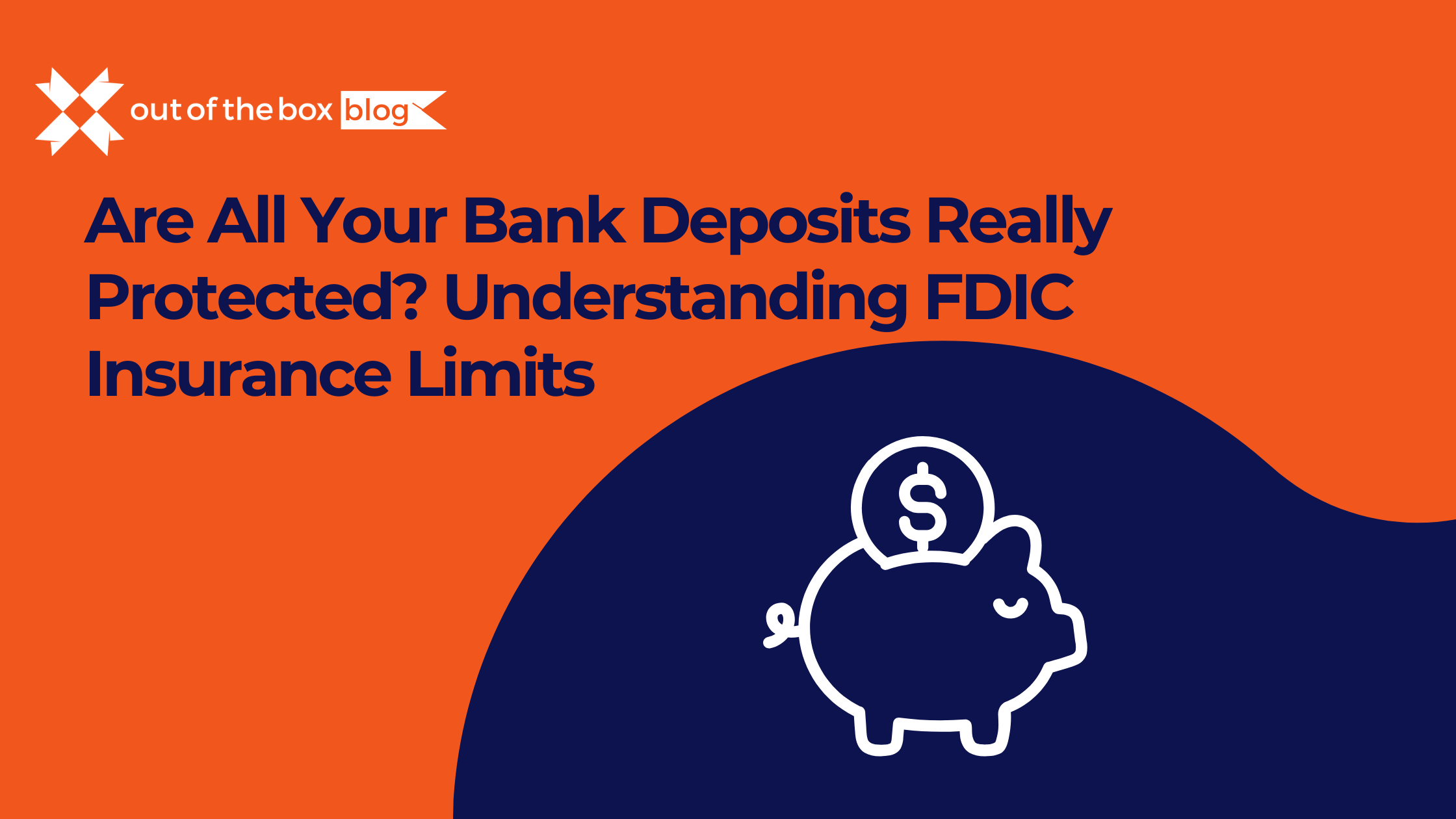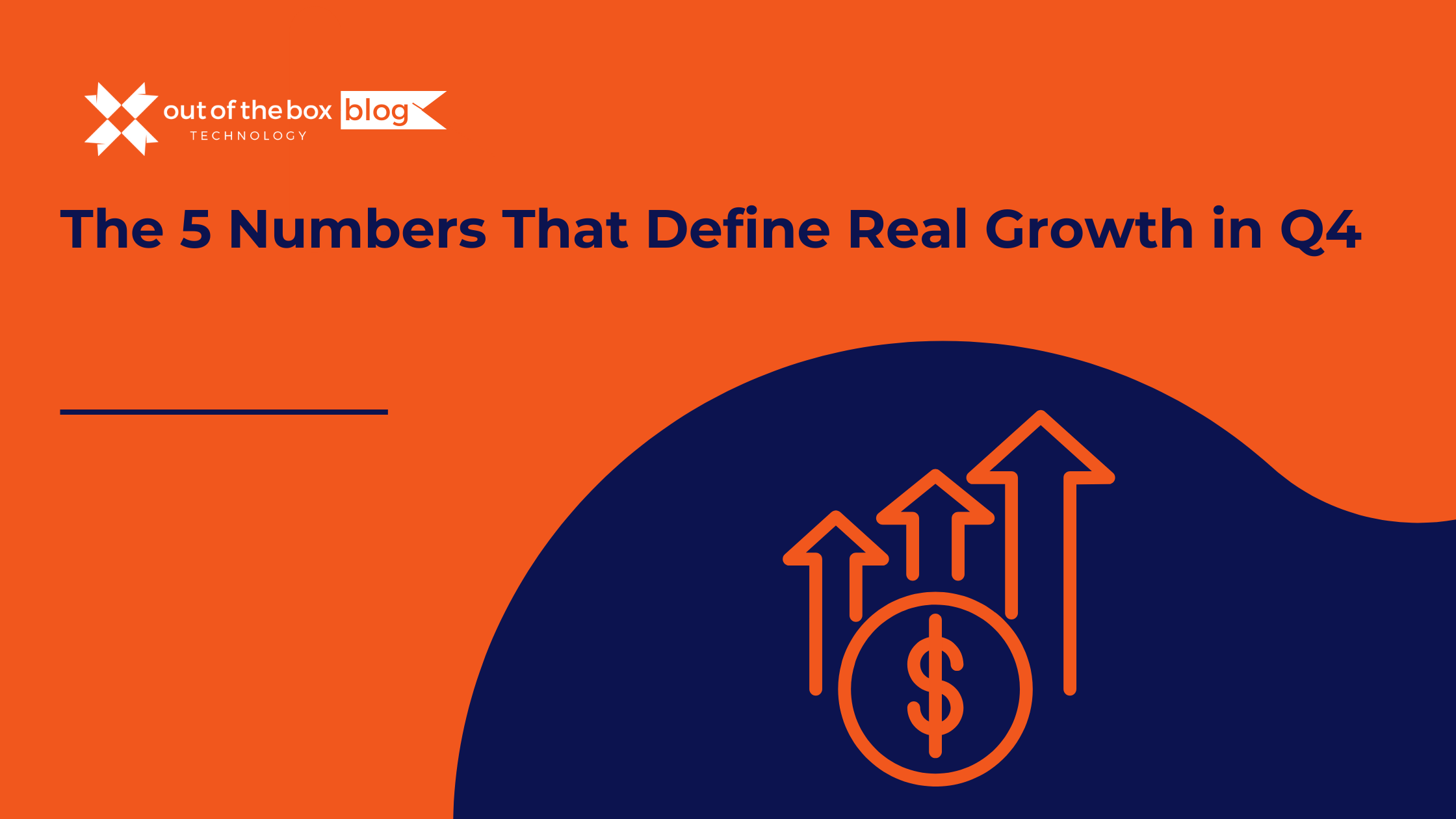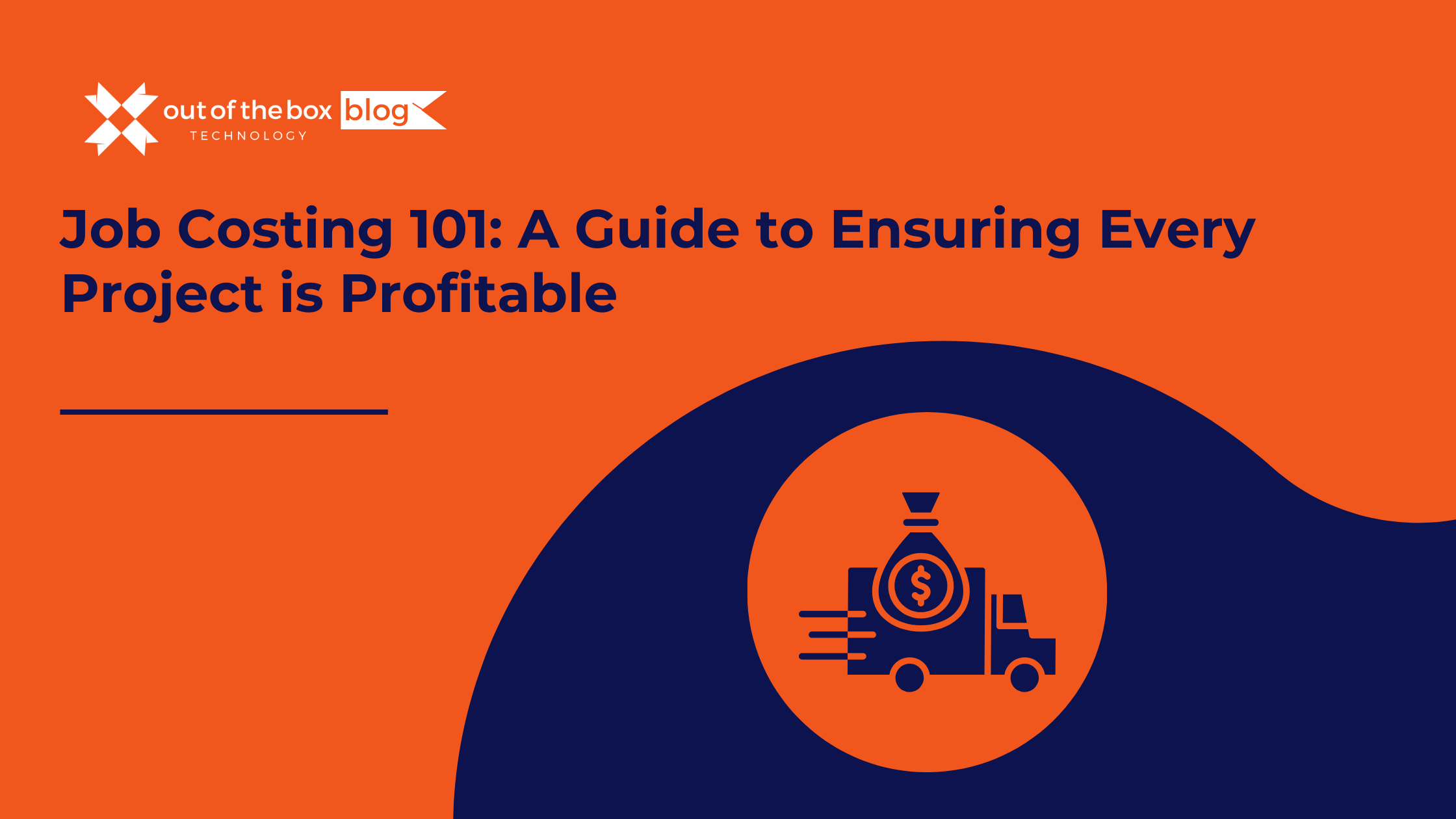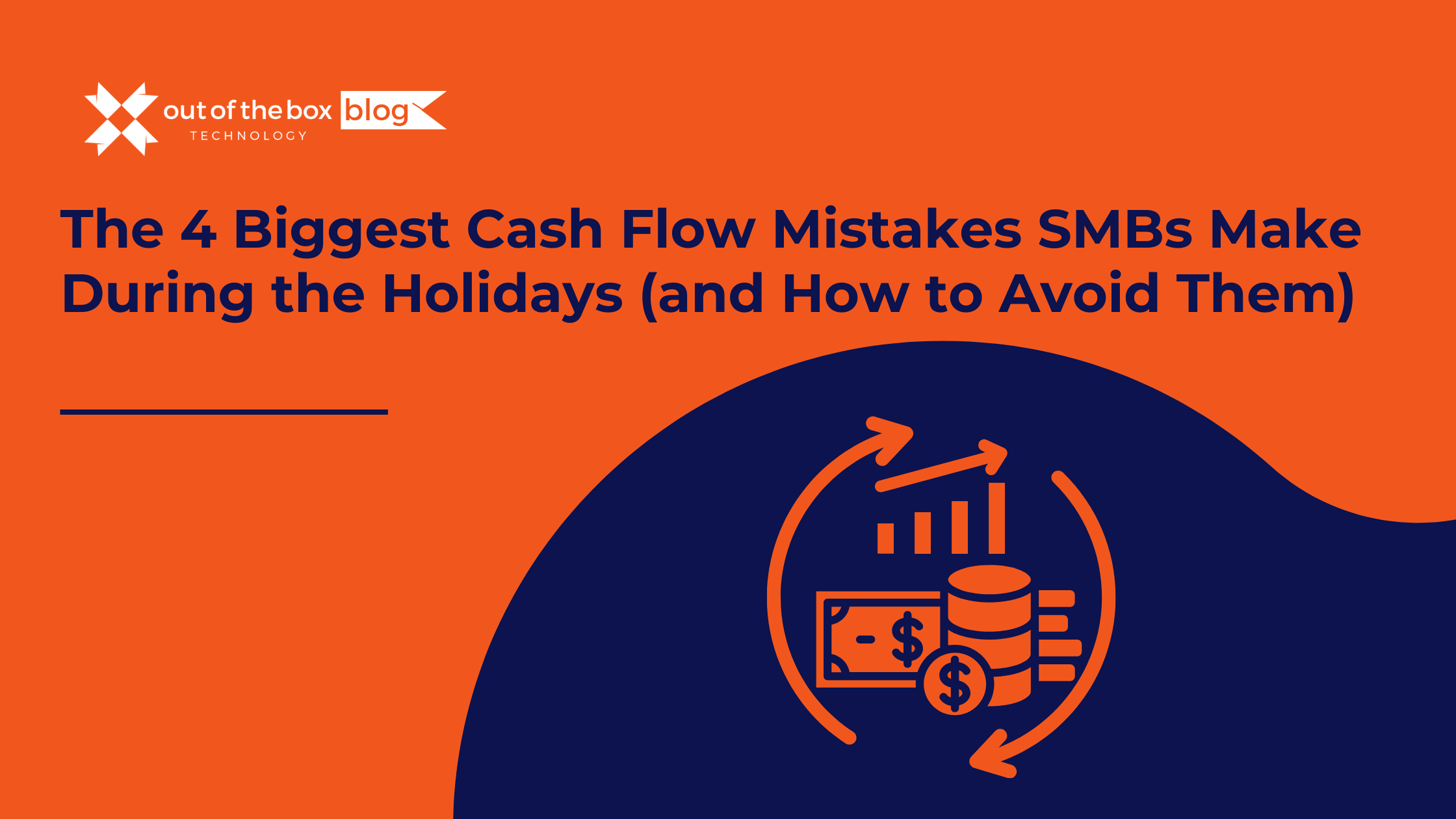Managing your business’s finances can seem daunting, but it doesn’t have to be. One of the simplest methods to track income and expenses is cash accounting. Whether you’re a small business owner, freelancer, or even an established company looking for clarity, cash accounting offers a straightforward approach to financial management.
In this guide, we’ll break down everything you need to know about cash accounting: what it is, how it works, its pros and cons, real-world examples, key differences from other accounting methods, and much more.
What You’ll Learn
-
What is cash accounting?
-
How cash accounting works in practice
-
Differences between cash accounting and accrual accounting
-
Pros and cons of cash accounting
-
Real-world examples and data points
-
Common mistakes and best practices
-
FAQs and actionable takeaways
Why Trust This Guide?
At Out of the Box Technology, we’ve helped thousands of businesses simplify their finances with reliable bookkeeping, cloud-based QuickBooks Online solutions, and expert accounting services. We understand the nuances of cash accounting and can help you decide whether it’s right for your business.
What Is Cash Accounting?
Cash accounting is a method of recording financial transactions when cash actually changes hands. Income is recorded when it’s received, and expenses are recorded when they’re paid.
Unlike accrual accounting, which records income and expenses when they’re earned or incurred (regardless of payment), cash accounting focuses strictly on the movement of cash.
Example:
-
If you invoice a client in April but they pay in June, cash accounting records the income in June.
-
Similarly, if you receive an invoice for supplies in March but pay it in May, the expense is recorded in May.
Key Features of Cash Accounting
✅ Records revenue when cash is received
✅ Records expenses when cash is paid
✅ Simple to maintain and understand
✅ Provides a real-time picture of cash flow
Data Point: How Many Small Businesses Use Cash Accounting?
According to the National Federation of Independent Business (NFIB), around 45% of small businesses in the U.S. use cash accounting, primarily because of its simplicity and ease of use (NFIB Survey, 2023).
How Does Cash Accounting Work?
Here’s a step-by-step overview:
-
Income Recognition: Income is recorded when payments are deposited.
-
Expense Recognition: Expenses are recorded when payments are made.
-
Bank Reconciliation: Periodic reconciliation of cash receipts and disbursements with bank statements.
-
Financial Statements: Generates simple income statements and cash flow statements.
Real-World Example
Consider Jane’s Pet Grooming, a small business offering pet services. In March, Jane completes a $500 grooming job but doesn’t receive payment until April. Under cash accounting, she recognizes the income in April when the cash is deposited.
Similarly, if Jane buys $200 worth of pet shampoo supplies in March but pays in May, she records the expense in May.
Differences Between Cash Accounting and Accrual Accounting
| Aspect | Cash Accounting | Accrual Accounting |
|---|---|---|
| Income Recognition | When cash is received | When earned (regardless of cash receipt) |
| Expense Recognition | When cash is paid | When incurred (regardless of payment) |
| Complexity | Simple | More complex |
| Financial Visibility | Focus on cash flow | Focus on overall financial health |
| Tax Implications | Often easier for small businesses | Required for larger businesses (over $27 million gross receipts) |
| IRS Rules | Allowed for businesses under $27 million annual gross receipts (as of 2023, per IRS) | Mandatory for certain industries and large businesses |
Pros of Cash Accounting
-
Simplicity: Easy to maintain, especially for sole proprietors and small businesses.
-
Real-Time Cash Flow Insight: Reflects how much cash is on hand at any time.
-
Tax Timing Flexibility: Income is only taxed when received, and expenses can be timed for maximum tax advantage.
-
Lower Costs: Requires less time and fewer resources than accrual accounting.
Cons of Cash Accounting
-
Limited Financial Insight: Doesn’t show accounts receivable or payable, so it can misrepresent the financial health of a business.
-
Not Suitable for All Businesses: Businesses with inventory or over $27 million in revenue must use accrual accounting.
-
Potential for Cash Flow Issues: May not account for pending liabilities or expected income.
-
Loan and Investor Challenges: Banks and investors often prefer accrual-based financial statements for clarity.
When Is Cash Accounting Appropriate?
Cash accounting works well for:
-
Sole proprietors and freelancers
-
Service-based businesses without inventory
-
Small businesses under $27 million in gross receipts
-
Cash-focused businesses where immediate cash flow visibility is important
It’s not suitable for businesses with complex operations, significant accounts receivable/payable, or inventory management needs.
Common Mistakes and Best Practices in Cash Accounting
Mistakes to Avoid:
-
Not Recording All Cash Transactions: Cash sales, reimbursements, and petty cash should all be recorded.
-
Ignoring Receivables and Payables: While they don’t appear on the books, they affect cash flow.
-
Failing to Reconcile Accounts Regularly: Monthly bank reconciliations ensure accuracy.
-
Mixing Personal and Business Finances: Always keep separate accounts.
Best Practices:
-
Use accounting software like QuickBooks Online to automate transaction tracking.
-
Review cash flow statements monthly to anticipate shortages.
-
Track all income and expenses, even small cash payments.
-
Work with professionals like Out of the Box Technology for setup and maintenance.
Data Point: How Cash Accounting Can Affect Tax Planning
A 2021 IRS report indicated that small businesses using cash accounting reported 10-15% lower taxable income compared to those on accrual accounting. This is largely due to the flexibility of recognizing income only when cash is received and deferring expenses (IRS 2021 Tax Compliance Data).
Detailed FAQs
1. What is cash accounting?
Cash accounting records income and expenses when cash changes hands. Income is recognized when received, and expenses when paid.
2. Who can use cash accounting?
Businesses with gross receipts under $27 million (as of 2023), sole proprietors, and certain service-based businesses can use cash accounting. Businesses with inventory or higher revenue must use accrual accounting.
3. How does cash accounting affect taxes?
Cash accounting offers flexibility in recognizing income and expenses, which can optimize taxable income and improve cash flow.
4. What’s the main difference between cash and accrual accounting?
Cash accounting focuses on cash flow, while accrual accounting records income and expenses when earned or incurred, regardless of cash movement.
5. Is QuickBooks suitable for cash accounting?
Yes. QuickBooks Online and other accounting software can be configured for cash accounting, simplifying transaction tracking and reporting.
6. Can I switch from cash to accrual accounting?
Yes, but it requires IRS approval if you’ve filed taxes on one method. Consult a tax advisor or accountant for proper procedures.
7. What reports does cash accounting generate?
-
Cash flow statement
-
Income statement (profit and loss)
-
Basic expense tracking
However, it lacks accounts receivable and payable visibility.
8. What’s a real-world example of cash accounting?
A freelance graphic designer invoices a client in March but receives payment in April. Under cash accounting, the income is recorded in April.
9. Is cash accounting suitable for my growing business?
If your business is scaling or managing inventory, accrual accounting may provide a clearer financial picture. Cash accounting works best for simple, service-based models.
Conclusion
Cash accounting offers a simple, cash-focused approach to financial management, making it ideal for small businesses, freelancers, and sole proprietors. By understanding how it works, avoiding common mistakes, and leveraging modern tools like QuickBooks, you can maintain clear, accurate records and focus on growing your business.
For those seeking expert guidance, Out of the Box Technology offers tailored bookkeeping services, QuickBooks setup, and support to ensure your business runs smoothly and stays compliant.
